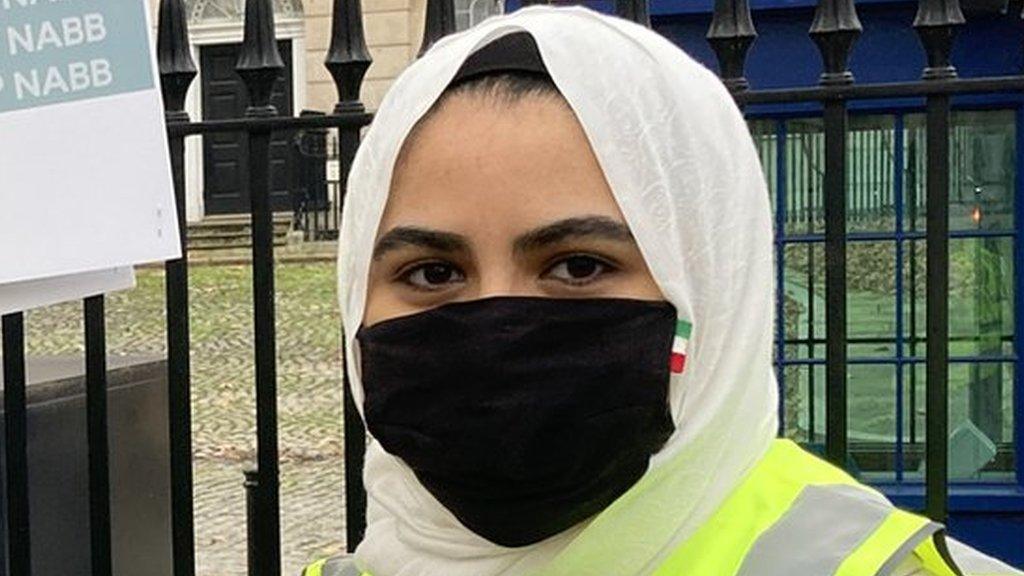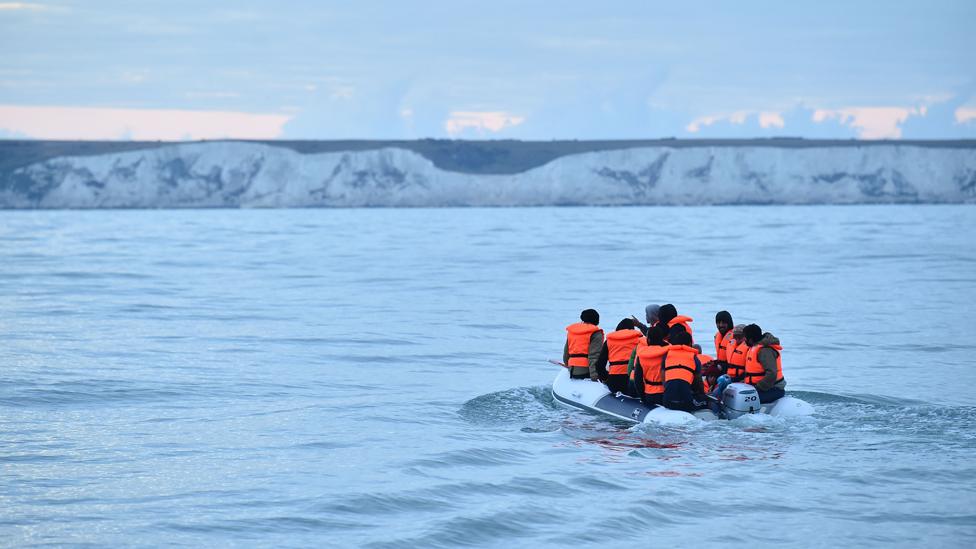Rwanda asylum seekers: UK could send first people 'within weeks'
- Published
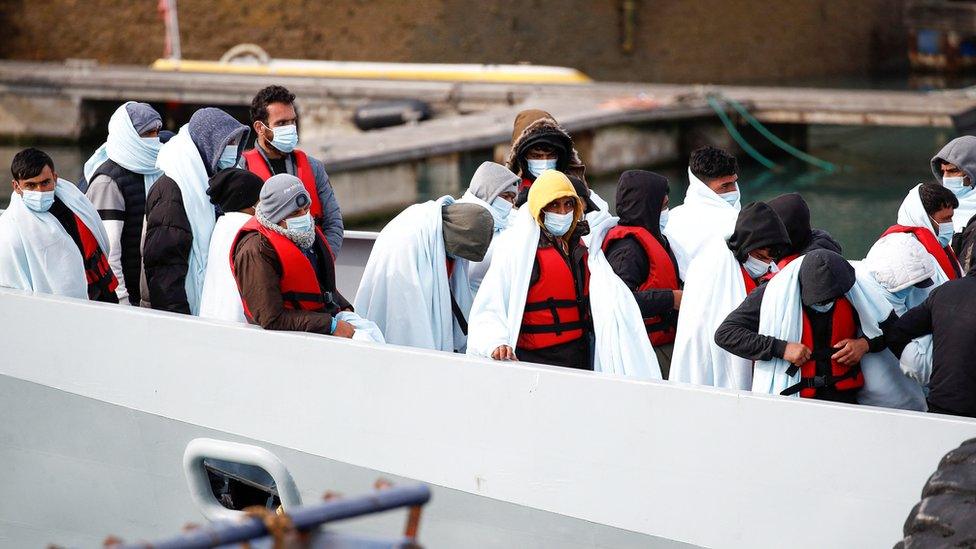
The scheme will initially focus on single men crossing the Channel in boats or lorries from France
The first asylum seekers could be flown to Rwanda from the UK within weeks, the government has said.
It follows the announcement of a pilot that will see people sent to the east African country to claim asylum there.
That scheme will initially focus on single men crossing the Channel in boats or lorries from France.
The prime minister said it would "save countless lives" and break the business model of traffickers, but campaigners have called the plan "inhumane".
Two more migrant crossings were recorded on Friday morning despite thick fog, the BBC's Simon Jones said.
Andrew Griffith MP - director of the No 10 policy unit - said the new scheme would not require new legislation and could be implemented under "existing conventions".
He told BBC Newsnight it could therefore be launched "in weeks or a small number of months".
He added that, if the flow of illegal migration could be stopped, it would leave "lots of capacity for the very generous safe and legal routes" into the UK.
The Rwanda scheme is part of a broader strategy to reduce the number of people entering the UK by crossing the Channel in small boats.
The Royal Navy has taken operational command of the Channel from UK Border Force in an effort to detect every boat headed to the UK.
Some 562 people on 14 boats made the journey on the day the new scheme was announced, according to the Ministry of Defence. No one making the crossing is believed to have arrived on UK soil "on their own terms", it added.
Last year, 28,526 people made the crossing, up from 8,404 in 2020.
Tony Smith, former director general of UK Border Force, said it could be weeks before it became clear if the "radical" new scheme was feasible.
He told BBC Breakfast the government was likely to face a legal challenge when people are put on aircraft bound for Rwanda.
"But then I'm not sure what the answer is to stopping the boats… because if we don't do something, then more people are going to drown," he said, adding the UK was potentially facing its biggest asylum intake ever.
In a speech on Thursday, Boris Johnson said the agreement with Rwanda would provide "safe and legal routes for asylum".
"Economic migrants taking advantage of the asylum system will not get to stay in the UK, while those with genuine need will be properly protected," he said.
He said the scheme would cover anyone who had arrived in the UK illegally since the start of this year.

'Just another risk to factor in'
By Jessica Parker, at a camp in Dunkirk, northern France

No one we initially spoke to yesterday seemed to know about the Rwanda announcement - but it wasn't long before word spread.
Soon a group of men was asking us lots of questions: "When will this happen? Why? If I come from Afghanistan will it still apply to me?"
Shafi, who told me he fled Afghanistan, said: "[Rwanda] is a lot worse place than Afghanistan, there is no future for us in Rwanda."
But I didn't meet anyone who said the government's plans would prevent them from trying to cross the Channel, including Shafi, who said he had no choice.
Many of these men have already faced huge risks to get this far and are willing to risk their lives crossing the Channel on a small boat.
The risk of being sent to Rwanda, at this stage, seemed like just another thing to factor in down the line.

More than 160 charities and campaign groups have urged the government to scrap the plan, describing it in an open letter as "shamefully cruel".
Refugee Council chief executive Enver Solomon said it would do little to deter desperate people and "only lead to more human suffering".
Labour leader Sir Keir Starmer said Mr Johnson was trying to distract the country from the Partygate scandal with an "unworkable, unethical, and extortionate" scheme.
The Lib Dems said the government was "slamming the door" in the face of refugees, while the SNP's Ian Blackford called the plan "absolutely chilling".
Former Ukip and Brexit Party leader Nigel Farage said it was "not much more than a short-term solution".
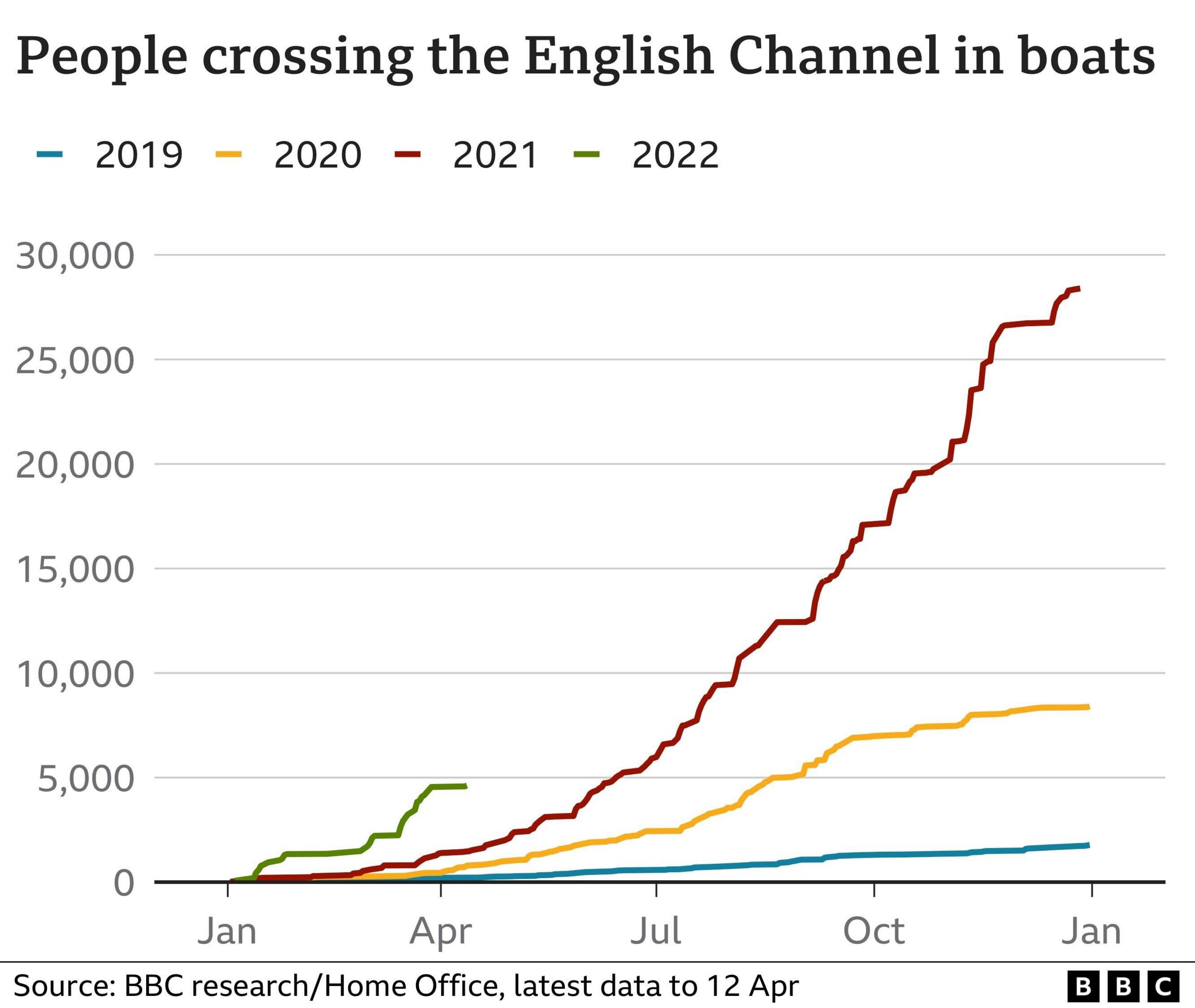
Questions are also being raised about the price of the scheme, with The Times, external reporting a cost of £20,000 to £30,000 for each migrant sent to Rwanda.
But justice and migration minister Tom Pursglove declined to give such a figure, telling BBC Breakfast it would depend on several factors.
He said the UK was spending nearly £5m a day on hotels, while the new scheme would initially cost £120m, with more money to be given later.
A similar programme in Australia cost an estimated £460m in 2021 but successfully resettled only 239 people - a cost of around £1.9m per person.
Concerns are being raised about the human rights record of Rwanda and its president, Paul Kagame.
Mr Pursglove said Rwanda was a progressive country which wanted to provide sanctuary and had made "huge strides forward" in the last three decades.
The minister said it was now one of only two countries in the world with a female-majority parliament and had an antidiscrimination law running "right through its constitution".
However, just last year the UK government expressed concern at the United Nations about Rwanda's "continued restrictions to civil and political rights and media freedom".
Steve Valdez-Symonds, from Amnesty International UK, said sending people to the east-African nation was "the very height of irresponsibility".
Yolande Makolo, a spokesperson for Rwanda's government, told the BBC it is a "safe country, it's developing rapidly, we care as much as every country about human rights".
According to an agreement between the two governments, people sent to Rwanda will get accommodation and support. They will be free to come and go from their accommodation at all times.
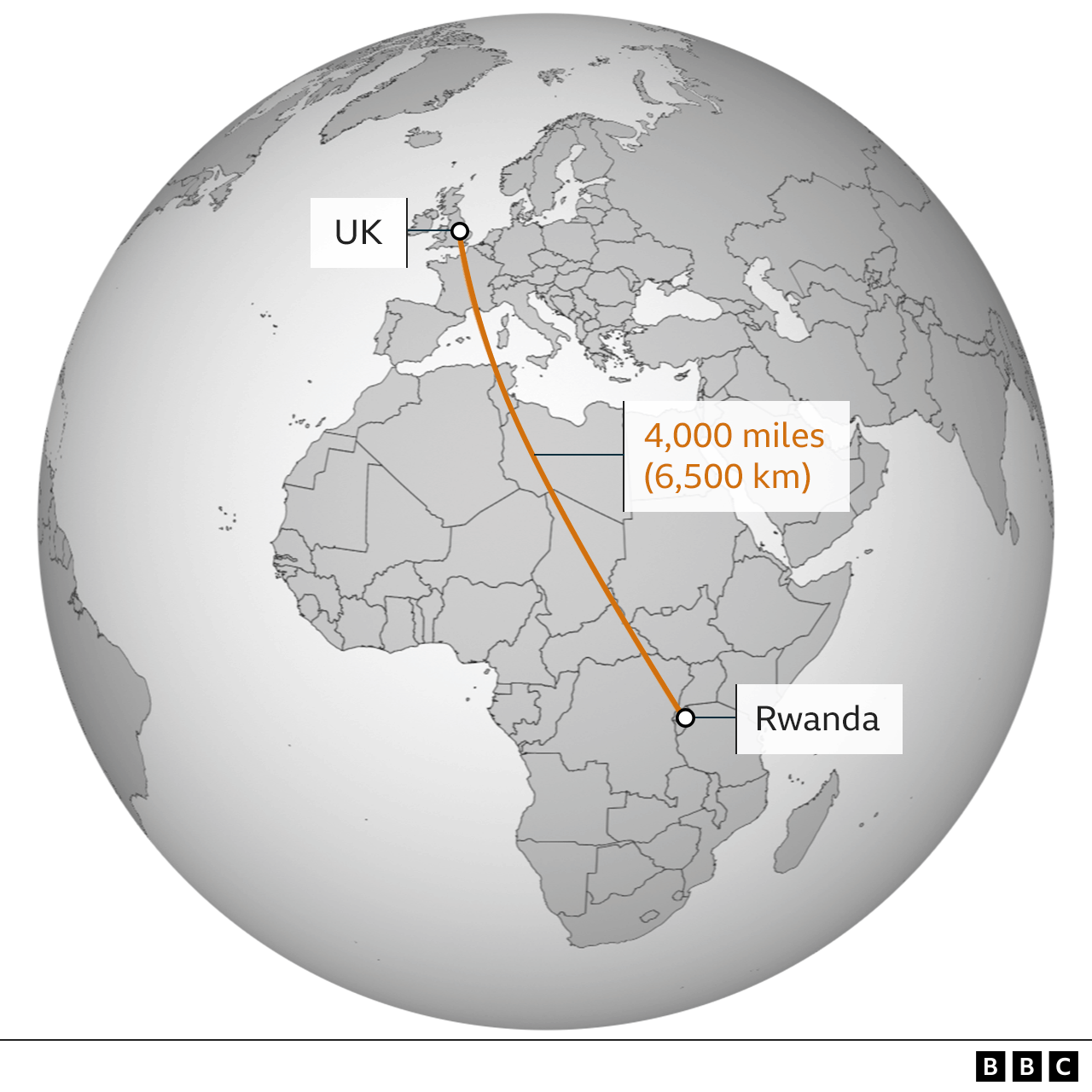

A WORLD WITHOUT DWARFISM?: Ellie Simmonds investigates a controversial new drug
EGG ROLLING, WITCHES AND FREE MONEY: How many questions on Easter traditions can you get right?

Related topics
- Published14 April 2022
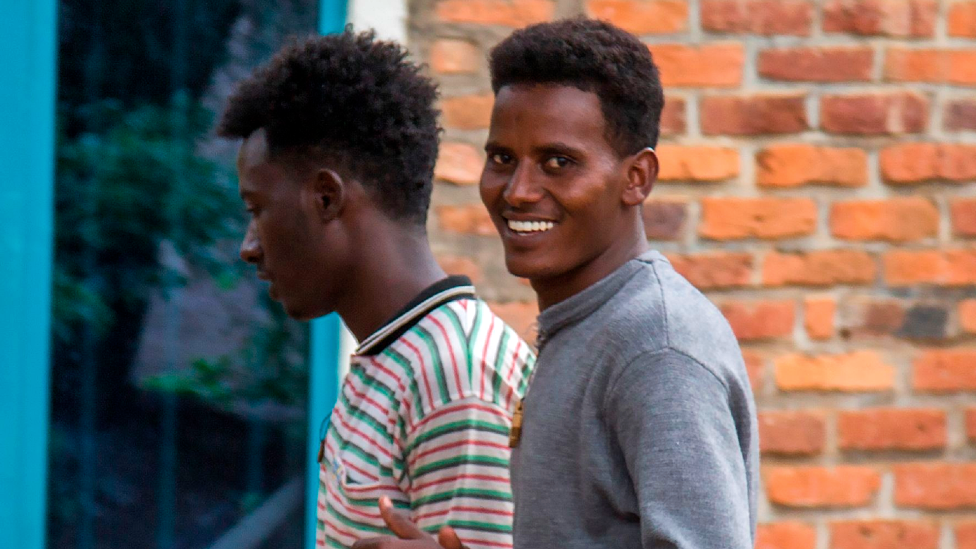
- Published7 January 2022
